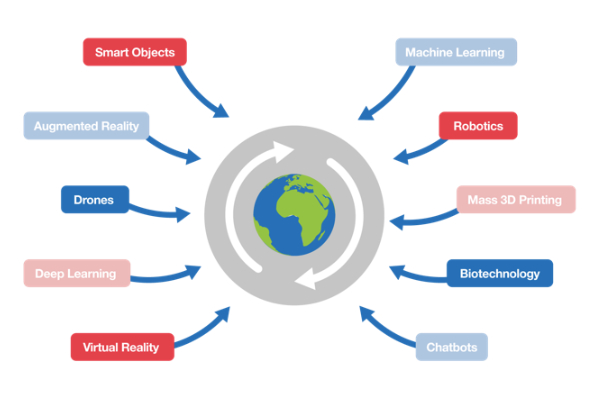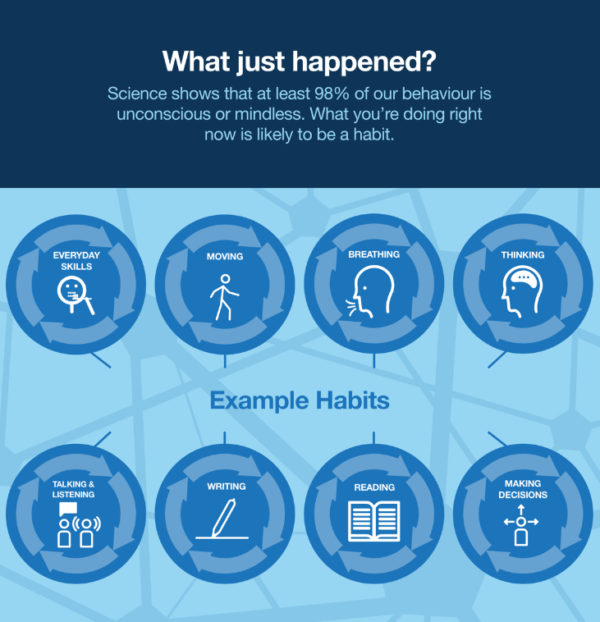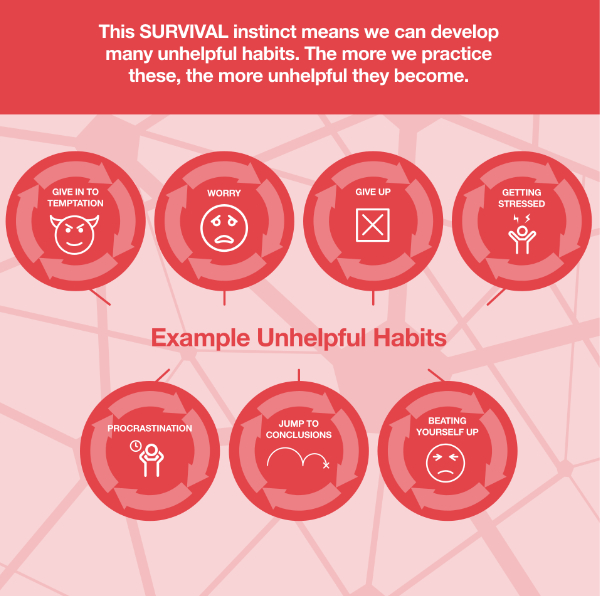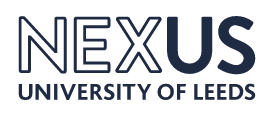Empowering people to drive economic success
Following on from our ‘Build Better Habits’ event, Nexus member and Tougher Minds founder, Dr Jon Finn, explains why connecting organisational change management with personal change management is essential to future proofing our economic prosperity.
In 1996, camera makers Kodak were the world’s fifth biggest brand, with a value of $31 billion. In 2012 they filed for bankruptcy. This was attributed to disruptive digital camera technology becoming a mass-market product. These cameras were embedded into mobile phones. This made Kodak’s core film-based business irrelevant.
At first glance, you might assume that Kodak failed because they did not innovate. But what many do not know is that Kodak invented the first digital camera in 1975. Also, in the thirty years leading up to their bankruptcy, Kodak reportedly invested $25 billion in research and development.
Kodak did not fail because they did not innovate. They failed because they did not change. The company knew what it needed to do but could not implement this quickly enough.
Kodak’s demise is a powerful reminder about the importance of successful change management. The essence of this process is that it is person-centric. More specifically it is about changing people’s habits. Companies and organisations that do not recognise this will not be able to change and will eventually fail.
As the Kodak story shows, helping businesses and their people to change is essential to success.
Why do we need to get better at change management?
We live in a uniquely challenging time. As humans, we have always experienced change, but, as we enter the fourth industrial revolution, the pace of change is increasing to breakneck speed.

Traditionally, when people entered the workforce, they learned their job and core skills to do it well. Before the 1990s, technology and its effects on our lives and work had been fairly stable. Once someone had learned their role, they were pretty much set for life.
However, in the noughties, society began to rapidly change. This was driven by technological advances. These include the growth of mobile device usage, AI and machine learning. Today, the technology that businesses need to stay cutting edge changes constantly.
But even if businesses adopt the best new technologies, it will not automatically make them successful. They also require their people to continually refine their skills, to make the most of the latest technologies, alongside their day job. Significantly, science shows us that humans find these types of changes very challenging.
Why can deliberate change be so difficult?
To begin understanding this, please read aloud the following passage.
To make sense of words it deosn’t mttaer in what order the ltteers in a wrod are, the olny ipmoetnt tihng is taht the frist and lsat ltteer are in the rghit pclae.
What just happened? Some letters are out of order but, despite the misspelling, we habitually recognise the words. The latest neuroscience shows that at least 98% of our behaviour is unconscious or mindless. What you are doing right now is likely to be a habit. That could be reading, breathing or making a judgement about this article.

But there is a problem. Our brains (specifically the limbic region) are hardwired to prioritise our own survival. This is a powerful primal instinct which drives our habits. It means that the type of habits we find it easiest to build can make it difficult to be healthy, happy and at our best in our rapidly changing world.
For instance, all humans prioritise finding and conserving energy. This means we can easily eat too much high-calorie food, and not do enough exercise. We crave social inclusion, so we worry what our family, friends and colleagues think. And we seek immediate pleasure, so we prefer watching Netflix for hours, rather than a good night’s sleep to prepare us for work.

The more we practice these habits, the more unhelpful they become. If you want to get good at worrying all you need to do is practice a lot and you will be a world champion!
Many businesses, social media organisations and media companies have worked out how to tap into these instincts. It could be the smartphone in your pocket, the “buy one, get one free” offers on unhealthy snacks, or the ability to stream endless films, TV shows or funny cat videos. The list feels endless.
We are surrounded by short-term gratification temptations. This is resulting in more unhelpful habits. Unhelpful habits make it far harder to be healthy, happy and perform to our potential. Life can feel overwhelming.
Unhelpful habits are costing the UK a lot of money. Consider these statistics:
● The NHS spends £11 billion per year on preventable lifestyle related illnesses
● Poor mental health costs £94bn every year in the UK – including treatment, social support costs and the loss to the economy from people who cannot work
● Poor productivity costs the UK £40bn last year
We need to connect organisational change management with ‘personal change management’. We need to empower people to understand themselves and show them how to deliberately build new helpful habits.
Personal Change Management
We can see that organisations which adopt this approach are better able to thrive in today’s challenging world. We call them Purposeful Development Organisations. According to Harvard University professor, Robert Keegan, good examples of these include the investment company Bridgewater Associates, the US real estate company Decurion Corporation, and ecommerce company, Next Jump.
These organisations report the following positive behaviours and outcomes among their people:
● Better performance
● Greater well-being
● Improved resilience
● Increased productivity and innovation
● Reduced stress
● Improved leadership development
● Increased employee retention
● Improved employee engagement
We think of Personal Change Management as a three-step process:
1. Identify Your Progress Habits
Progress habits are connected to many aspects of our lives. These include: sleep, diet, exercise, motivation, stress management, building confidence, increasing productivity, creativity, innovation, becoming a Transformational Leader. To help people do this we have created a free tool called the A.P.E. Brain Test.
2. Knowledge and Skills
Gaining access to knowledge and skills to build and develop new progress habits.
3. Habit Programmes
Use behavioural science insights to help individuals and organisations build habit programmes. They enable people to practice helpful behaviour so it becomes a helpful habit. We use our own Nine Action Factors model to help individuals and organisations build these.
Towards success for Leeds City Region
Our own applied work and extensive research, supported by global scientific opinion, highlights one factor that seems more important than any other for regional success. This is to upskill and empower people to engage in Personal Change Management so they are ready for the challenge. The result will be healthier, happier people who help the North fulfil its potential and promise.

